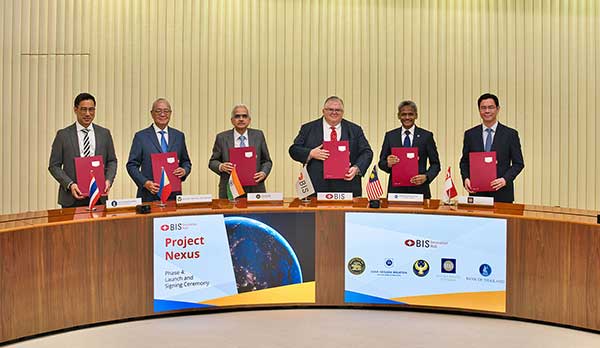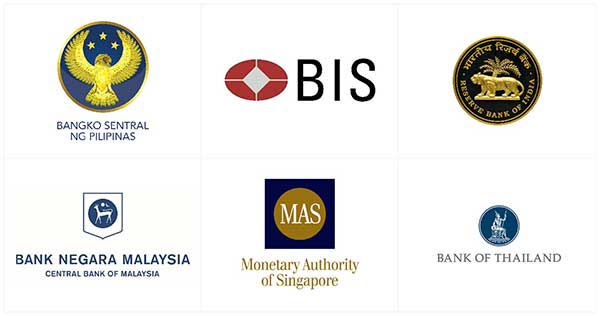
The Bangko Sentral ng Pilipinas (BSP), the Bank for International Settlements (BIS), and other partners have successfully completed the comprehensive blueprint for the third phase of Project Nexus.
The initiative aims to seamlessly connect domestic instant payment systems (IPS) globally, facilitating faster and more efficient cross-border transactions.
The blueprint marks a significant milestone as Project Nexus moves towards live implementation.
The BIS will continue to play an advisory role, assisting central banks and IPS operators from India, Malaysia, the Philippines, Singapore, and Thailand. These countries will collaborate in the next phase, with the Bank of Indonesia participating as a special observer.
The upcoming phase will include the Reserve Bank of India, integrating India’s Unified Payments Interface (UPI), the world’s largest IPS, into the project. This expansion is expected to significantly enhance the user base and operational scope of Project Nexus.
Nexus is designed to standardize the interconnection of domestic IPS, allowing operators to establish a single connection to the Nexus platform.
The innovation eliminates the need for custom connections for each new country, thereby enabling instant access to all participating networks.
BIS General Manager Agustin Carstens highlighted the project’s potential impact, saying, “Even with just the first wave of connected countries, Nexus has the potential to connect a market of 1.7 billion people globally, allowing them to make instant payments to each other easily and cheaply.”

Supporting global and local economies
BSP Governor Eli M. Remolona, Jr. emphasized the benefits for Filipinos, particularly overseas workers and small to medium enterprises (SMEs).
“We look forward to Nexus providing overseas Filipinos with a cheaper and faster means to send money to family back home, and facilitating the globalization of Filipino small and medium scale enterprises,” Remolona said.
To facilitate the live implementation of Nexus, the partner central banks and IPS operators will establish a new entity, the Nexus Scheme Organisation (NSO).
The NSO will manage the Nexus scheme and continue efforts to achieve instant cross-border payments on a global scale.
While the BIS will not own or operate the NSO, it will maintain a technical advisory role to support cooperation and the integration of new participants.
The conclusions and lessons from phase three of Nexus are detailed in a recently published report, which includes a scheme rulebook and technical implementation guides available to central banks on request.
The project aligns with the G20 Roadmap for Enhancing Cross-border Payments, aiming to improve the speed, cost, transparency, and accessibility of international transactions.
The successful prototype of Nexus connected test versions of the Eurosystem’s TARGET Instant Payment Settlement (TIPS), Malaysia’s Real-time Retail Payments Platform (RPP), and Singapore’s Fast and Secure Transfers (FAST) payment system. This laid the foundation for the current phase, involving significant cooperation among ASEAN central banks and beyond.
In November 2022, Bank Indonesia, Bank Negara Malaysia, BSP, the Monetary Authority of Singapore (MAS), and the Bank of Thailand signed a Memorandum of Understanding (MoU) on Cooperation in Regional Payment Connectivity. The collaborative effort has since expanded to include Brunei Darussalam, Laos, and Vietnam.






















